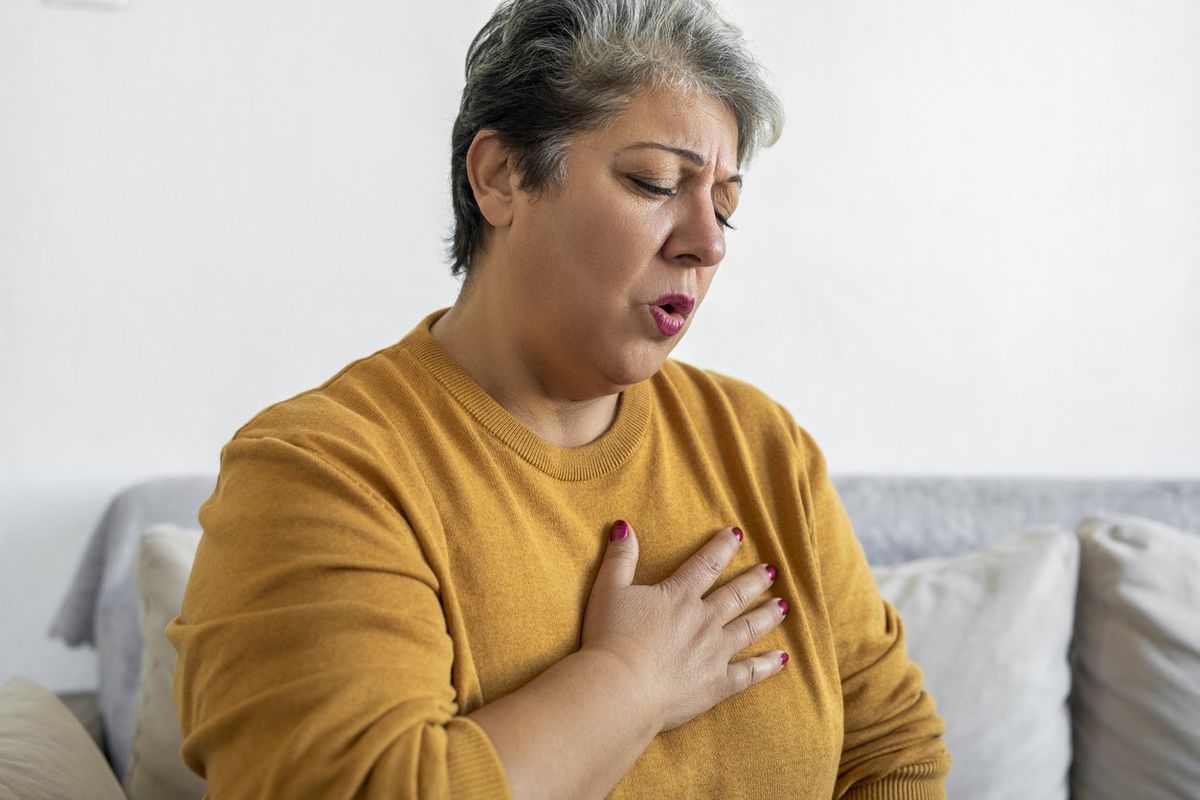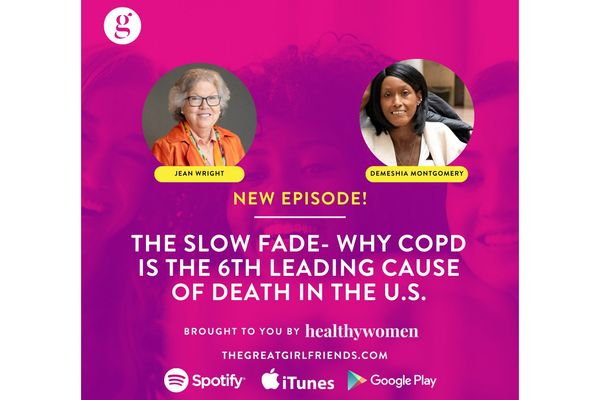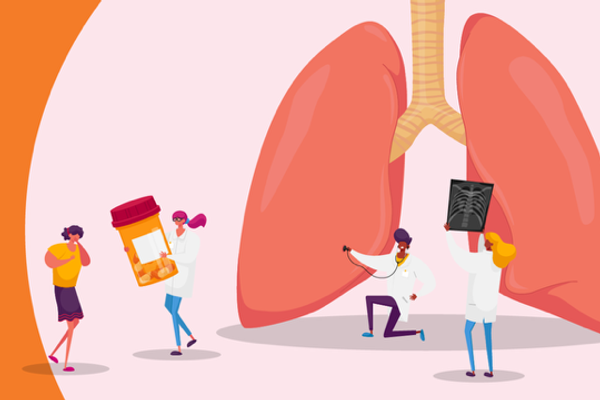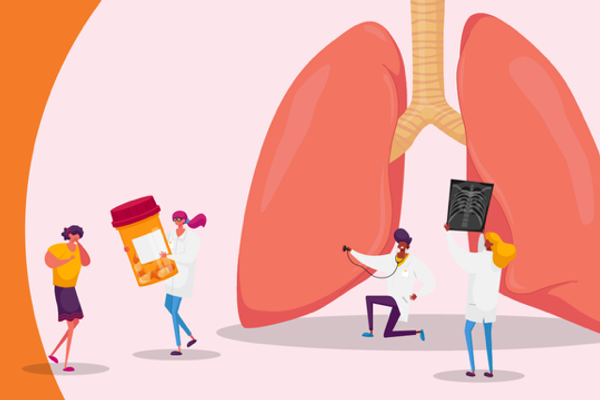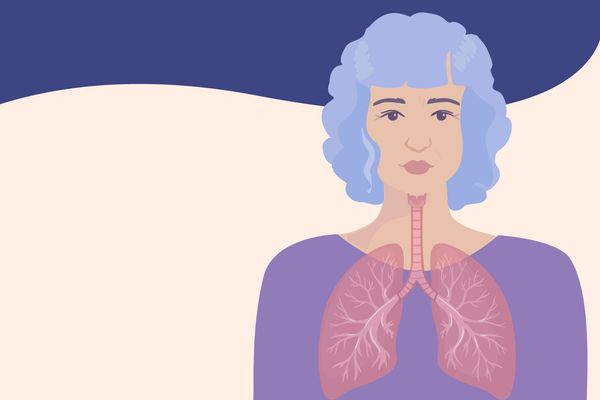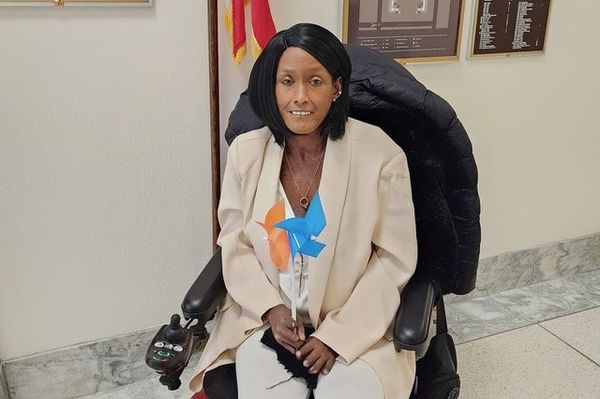Everyone gets a cough or feels winded from time to time (thanks, stairs). But symptoms that linger and get worse are a sign of chronic obstructive pulmonary disease (COPD). COPD is a group of diseases that block airflow and create breathing-related problems. Without proper diagnosis and treatment, COPD is more likely to lead to severe lung damage and even death.
More than 17 million people in the U.S. are living with COPD — and more than half are women. And that number may be higher because some people don’t even know they have it. “The number one reason why it’s an invisible epidemic is because chronic lung conditions parallel the aging process,” said Jean Wright, M.D., CEO of the COPD Foundation. “People don’t know they have a problem. They just slow down or they don’t do things as vigorously as they used to.”
Wright said symptoms start out subtle, and the risk for COPD is higher for women and people assigned female at birth compared to men.
Here’s more on symptoms, risk factors and important information you need to know about COPD.
What is COPD?
COPD is a term for a group of diseases, including chronic bronchitis and emphysema, that cause breathing problems and block airflow. COPD develops over time and the main causes are smoking and long-term exposure to cigarette smoke. However, you can still be diagnosed with COPD even if you have no history of smoking.
What are the symptoms of COPD?
The signs of COPD can start small and get worse over years. The common symptoms include:
- Frequent coughing (with and without mucus)
- Wheezing
- Shortness of breath
- Difficulty taking a deep breath
- Tightness in the chest
- Lack of endurance
- Lack of energy
Women are usually diagnosed with COPD at a younger age compared to men. “We get it in our 40s or 50s where men may be 50s and 60s, and we have a heavier burden of illness,” Wright said. “The symptoms of fatigue and shortness of breath are more dramatic in us.”
If you’re having symptoms of COPD, ask your healthcare provider (HCP) about taking a spirometry test to measure how well your lungs are working. Other tests used to help diagnose COPD can include:
- Chest X-ray
- CT scan
- Blood tests
What are the risk factors for COPD?
Tobacco smoke is the main cause of COPD in the U.S., but you can also be at risk for COPD if you:
- Have a history of asthma
- Have a rare genetic disorder called alpha-1-antitrypsin deficiency
- Have been or are exposed to irritants such as dust, vapors and chemical fumes
- Have been or are exposed to burning fuel
- Live in a rural area
As you age, your lungs get weaker, which can make you more likely to get COPD or can make your symptoms worse.
Women and COPD
Over the past 24 years, cases of COPD have increased in women, and more women die from COPD than men. Researchers are still trying to figure out why this is, but one idea is that women’s lungs and airways are smaller and more likely to be harmed by tobacco smoke and air pollution compared to men’s. “Most of us have shorter bodies and smaller lung capacity,” Wright said. Research shows that women who smoke are diagnosed with COPD at an earlier age compared to men who smoke — even when the women smoke less.
Wright also noted that estrogen may play a role in why women get COPD, but research is ongoing.
Overall, women are more likely to be misdiagnosed and experience delayed diagnosis for COPD compared to men. And later diagnosis means COPD is harder to treat.
The delay may be due to bias since COPD was typically diagnosed only in men until more recently. Socioeconomic factors, including a lack of access to healthcare and education, may also lead to a delay in diagnosis.
Women with COPD are also more likely to have osteoporosis and depression compared to women without COPD.
Can you prevent COPD?
The good news is that you can take steps to prevent COPD. First, if you smoke, quit.
Avoid tobacco smoke and air pollutants in your home and at work. Proper ventilation and eliminating exposure to hazardous materials can help reduce COPD-related illness.
Also, staying healthy and free from respiratory infections can help prevent COPD.
If you do have COPD, early treatment can reduce symptoms and help your quality of life.
Treatment options for COPD
Treatment options for COPD are different based on the diagnosis and severity of symptoms. With the help of an HCP, you can find a treatment plan to help reduce symptoms and the frequency of symptoms and slow down the progression of disease. Treatment options include:
- Medication
- Pulmonary rehab programs to help with breathing
- Oxygen therapy
- Surgery
Wright suggested getting involved with a patient support group to talk about treatment options and also get information about clinical trials and advocacy organizations. “You don’t have to suffer alone. You can learn so much more from others in that space, and we want people to have hope.”
Resources
American Lung Association — Better Breathers Club
This educational resource was created with support from Viatris, a HealthyWomen Corporate Advisory Council member.
- Chronic Obstructive Pulmonary Disease (COPD) ›
- COPD symptoms and COPD treatments for women - HealthyWomen ›
- COPD symptoms and COPD treatments for women - HealthyWomen ›
- Effective COPD Treatments: What You Need to Know - HealthyWomen ›
- Healthy Living With COPD - HealthyWomen ›
- Vivir saludablemente con EPOC - HealthyWomen ›
- Tratamientos de EPOC - HealthyWomen ›
- COPD Diagnosis and Education Help Make Symptoms Manageable - HealthyWomen ›
- What It’s Like to Live with COPD - HealthyWomen ›
- Cómo es vivir con EPOC - HealthyWomen ›
- Learn Facts About COPD - HealthyWomen ›
- Learn Facts About COPD - HealthyWomen ›

